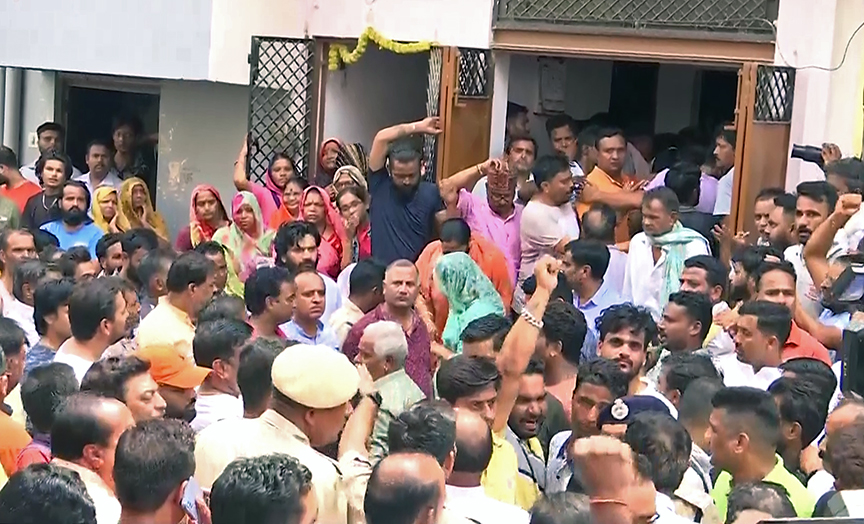‘Swift action needed to identify, deradicalize individuals and check influence of organizations propagating militant Islam’.
New Delhi: The brutal killing of a tailor by two Muslim fundamentalists in Udaipur, officials say, has brought to the fore the extent of radicalization that has spread in certain sections of the population. The officials have warned that such incidents will be repeated unless swift action is initiated to identify and deradicalize the individuals and stop the influence of organizations that propagate militant Islam.
On 28 June, Mohammed Riyaz Akhtari and Mohammed Ghaus killed Kanhaiya Lal for supporting a statement made by former BJP spokesperson Nupur Sharma on 26 May, which the two found to be “anti-Prophet”. While Akhtari hacked Lal to death, Ghaus kept on recording the incident on his mobile phone. The said video was then posted by them online in which they said that they had killed Lal to avenge “insult” to the Prophet.
Mohammed Ghaus, officials have said, had travelled to Karachi in 2013-14 to undergo religious training at the headquarters of the Dawat-e-Islami (DeI) that is located at the University Road.
The organization, that was founded in 1981 by Ilyas Qadri, 71, whose forefathers migrated to Pakistan from Junagarh, Gujarat, during the Partition, is among the most prominent Islamic organizations of Pakistan and has 820 Jamia-tul-Madina (Islamic university) in Pakistan where close to 55,000 people study the teachings of Quran.
The DeI has two offshoots—The Sunni Tehreek (ST) and Tehreek-e-Labbaik (TeL)—both of which indulge in religious and political activities and violence to “save Islam” and “protect the interest of Barelvi schools of thoughts” from the Deobandis and those who practise the Ahl-al-Hadith school of thought. Its last two leaders both have died violent deaths and it is considered by the Pakistani security apparatus as a violent organization.
The followers of DeI, ST and TeL all consider “insult” to the Prophet as a heinous crime. They had announced legal assistance to Mumtaz Qadri, the assassin of former Punjab Governor Salman Taseer who was killed by Qadri for “insulting” the Prophet. Qadri too, like Mohammed Ghaus, was a follower of the DeI.
According to Indian officials, the Udaipur incident has the potential to trigger similar events in other parts of the country, especially in places where the state governments have failed in controlling the opening of unauthorised institutions where incorrect and radical form of Islam is taught.
“The state governments have failed to control the mushrooming of such institutions due to political benefits. This has happened despite Islamic scholars repeatedly stating that the Islam being taught in such institutions is not correct and they should not be allowed to operate. These institutions are impacting and radicalising the thought process of the people who mostly come from weak economic backgrounds and are easily lured into religious trappings,” an official with one of the agencies that is probing the Udaipur incident, said.
What has also tied the hands of the officials in taking pre-emptive actions against such institutions is the “incorrect” international narrative that the present dispensation is “anti-Muslim”.
The resource crunch, especially the lack of qualified manpower that can generate human intelligence from the ground by interacting with the people who go to these institutions and monitor them, too, has led to a situation where neither the Special Branch or the Intelligence Bureau (IB) are aware of what is being propagated there until an incident happens.
“We have been sharing inputs about such illegal institutions that have come across in multiple parts of India, but not even in 10% of the cases has any action been taken by the state authorities. Agencies under the central government cannot do much in these cases; it is the responsibility of the local officials. The local officials, even if they want to act on our inputs, are not able to do so due to the interference of the politicians. It is a very dangerous situation that we are looking at and unless a larger view of this increasing radicalization is taken, we will see more Udaipur like incidents in the coming days,” an official with the Ministry of Home Affairs (MHA), said.

